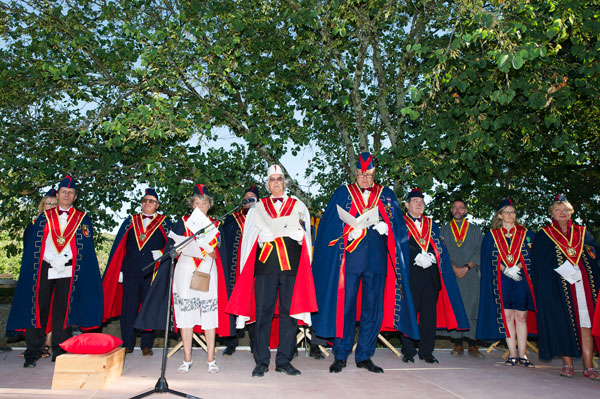
Le Grand Maître et les Grands Dignitaires de l’Ordre Illustre des Chevaliers de Méduse
The Grand Dignitaries and Knights of the Illustrious Order of Knights of Medusa gathered at the Commanderie de Peyrassol to celebrate their extra-muros chapter.
The Illustrious Order of Knights of Medusa, its Grand Master, Jean-Pierre Boyer, the Grand Dignitaries and the Knights of Medusa held their extra-muros Chapter on July 1, 2017 at the Commanderie de Peyrassol, a prestigious wine estate in Flassans-Sur-Issole in the Var. Hosted by Alban Cacaret, Director of the Commanderie de Peyrassol, Dignitaries and Knights attended the Mass of the Knights on the Calade of the château, said by François Grais, Chaplain of the Army, before the induction of the applicants. The evening continued with an aperitif with “oils” from the Commanderie de Peyrassol and the traditional agapes under the sign of conviviality, punctuated with a lot of “Lampées” (swigs) of our good Oils from Provence.
We invite you to discover the illustrious Order of the Knights of Medusa, a story told by its Grand Master, Jean-Pierre Boyer.
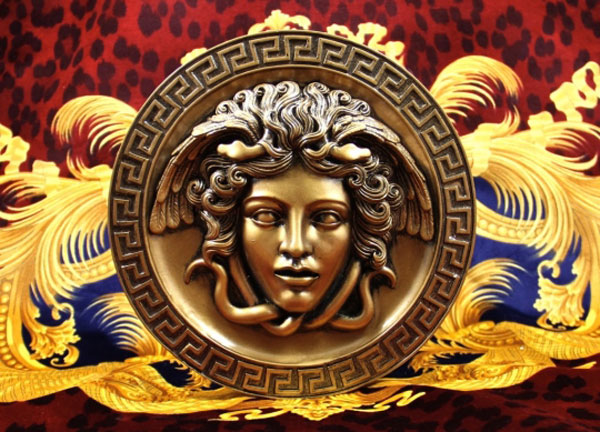
Méduse ©Ordre Illustre des Chevaliers de Méduse
Bacchic order at the service of Provence wines
The Illustrious Order of the Knights of Medusa is a Bacchic order serving the wines from Provence, instituted by naval officers in Marseille between 1683 and 1684. The Knights of Medusa come mainly from the domains of viticulture, gastronomy and the arts of living. This chivalrous and facetious order of chivalry observes special rules and its members meet to hold Chapters in prestigious places where the values of sharing, pleasure and friendship are celebrated. The Commanderie de Peyrassol, steeped in templar and chivalrous history, is a land suitable for the offices of Medusa, in order to reconnect with the centuries-old traditions of worshipping of the vine and the spirit of camaraderie.
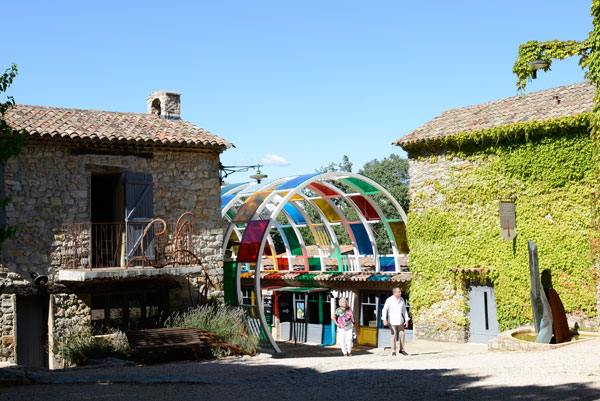
Entrée de la Commanderie de Peyrassol
The poetry of wine
Since the dawn of time, wine is a primordial element of our culture, exalted in the poetry, here by Baudelaire:
“One evening, the soul of wine sang in the bottles:
Man, towards you I push, ô dear disinherited
Under my glass jail and my red waxes,
A song full of light and brotherhood”Vins de la Commanderie de Peyrassol
Dionysus, theater and tragedy
The first evocation of the wine is found in the Bible, where the Book of Genesis tells that when leaving the Ark with his wife, sons and animals, “Noah began to cultivate the land and planted the vine.” In ancient Greece and Rome, vine and wine occupy an important place in the culture: the name of Dionysus, God of Wine, is mentioned centuries before Christ. Patron of agriculture, Dionysus – reputed to have emerged from Jupiter’s thigh – delivered oracles and presided over a wine cult. He traveled the world and propagated the culture of the vine. It was during the festivals of worship at Dionysus, the Dionysia, that the theater and tragedy were born. Later, the Romans venerated him under the name of Bacchus.
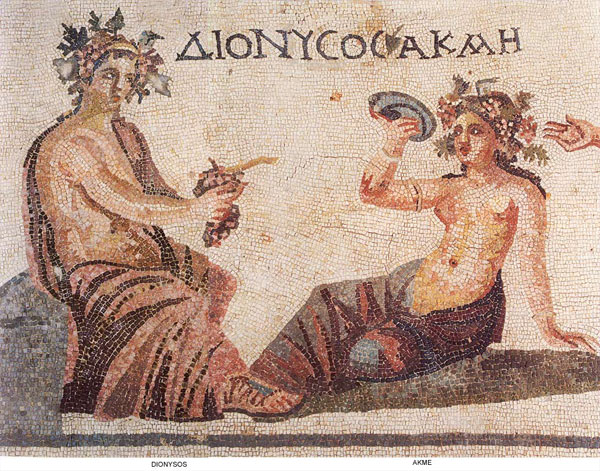
Dyonisos Dieu du Vin ©DR
Wine, a universal element of culture
Wine is still today a universal element of culture, such as poetry, literature or music: it opens the doors to imagination and dreams and participates in artistic creation. In Provence, the worship of the Holy wine-growers was doubtless, after that of the Virgin and the apostles, one of the most developed. Thus, Saint Vincent and Saint Marc are the patron saints of many places of worship. The name of Marc is sufficient to explain its adoption by the winegrowers as well as Vincent for the first syllable of his name. Saint-Vincent and Saint Marc each year received the fervent tribute from the vineyard towns on the occasion of the great festivals of religious essence in which certain pagan practices survived.
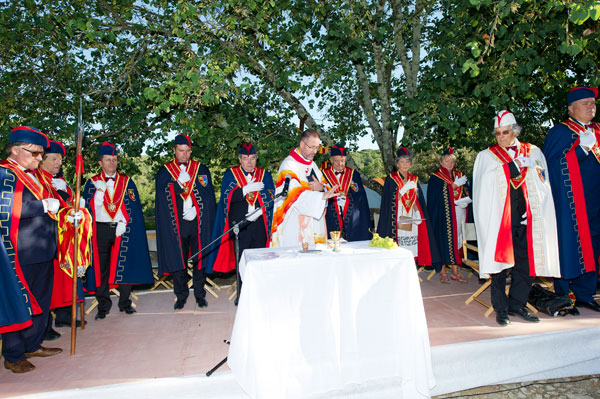
Bénédiction de la Grappe de Raisin pendant la Messe
Bacchic societies in Provence
In the seventeenth century, devout vineyard brotherhoods really blossomed. Among the most important are the brotherhoods of Saint Vincent de Vaison (1645 – 1791), of Saint Marc de Châteauneuf-du-Pape (1662-1792) or the brotherhood of Saint Marc lès Avignon which, created in 1664, still exists today. In the seventeenth century, societies known at the time under the denomination of bacchic societies were found in France, alongside these wine-growing brotherhoods.
In Provence, three major Bacchic societies were founded around 1690 such as the Illustrious Society of Brothers and Sisters of the Order of Medusa, created in Marseilles. The siege quickly settled in Toulon, where it grew and was fortified under the decisive impulse of Jean-Louis Girardin, Seigneur de Vauvré, Intendant General of the Navy, who joined the Illustrious Order in 1693 and, in 1697, was instituted Benefactor of the Order and Grand Prior of high and low Provence.

Présentation de l’impétrant Théo Mansi (L’Auberge de Théo à Nice) par son parrain
Medusa’s petrifying gaze
A structured order inspired by religious orders, even orders of chivalry, the Order of Meduse is the one that has had not only the greatest growth in France and abroad, but also the most durable as it is still active today in a form quite comparable to that of its origins. In mythology, Medusa is one of the three Gorgons with her sisters Steno and Euryale. Perseus, at goddess Athena‘s command, succeeded in killing Medusa by cutting off her head, but even when cut off, the Medusa’s head retained the faculty of petrifying those whom she met the gaze. This is why Athena placed her on her shield to petrify her enemies. The legend has it that Perseus threw Medusa’s head in the Mediterranean, not far away from Toulon…
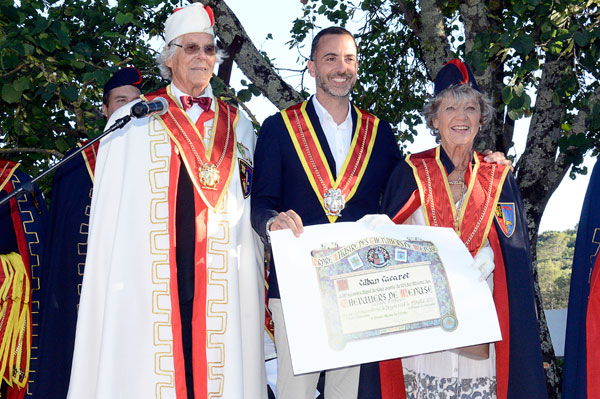
Alban Cacaret, élevé au rang d’Officier de l’Ordre Illustre des Chevaliers de Méduse
The game of petrification
Petrification was also part of the game, called the Game of Medusa, which the members of Illustrious Order of Knights of Medusa invariably performed when they were reunited. This practice is in perfect correspondence with the powers of the Gorgon, Mother of the Illustrious Society, except that it is not the one who drinks who is petrified but the whole assembly which must cease all movement while a Member of the Order is drinking. The brothers only were forced into petrification, that is to say immobility, the sisters being exempted for the simple reason that they had to observe the petrified brothers and denounce those who didn’t remain motionless for them to pay two sols of contravention to the cashier of the Order!
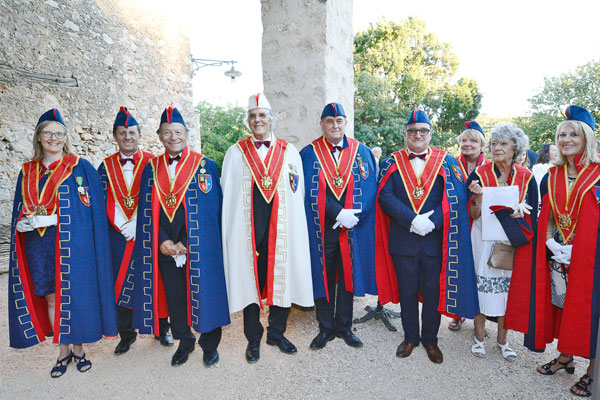
Remise de la médaille d’Officier du Mérite Agricole à Daniel Veyssi
Laetificat! Petrificando!
The spirit of facetiousness prevailing in the Illustrious Order of the Knights of Medusa prohibits the use of “vulgar” words, namely “Monsieur and Madame, wine, glass or drink” and substitutes the – called unctuous and loving – words “My Brothers, my Sisters, Oil, Lampée (swig) and Lamper”, the oil being the symbol of gentleness and the lamp that of the vigilance illuminating the spirit of Man. The divine beverage – gift of our Mother Medusa – takes the name of Oil because, like it, the nectar is sacred and full of sweetness. The glass becomes the Lamp that radiates the sacred flame, symbol of spirit, knowledge and heart.
Under the authority of the Grand Master or the Grand Prior, who take the decision for the Lampées, the Grand Cellérier orders: “Lamp in hand, Lamp lit (glass filled), Let us carry it to our eyes, and after invoking our Medusa Mother, lampons (let’s drink)!”
At the end of the Lampée, the Grand Celliérer adds: “Oleo et Lampade Medusa Gaudet”. The Knights answer: “Laetificat! Petrificando!” And all the participants conclude with a resounding “Alleluia! Alleluia!” A Lampée opens the festivities of the order and and the meeting ends with a last one.
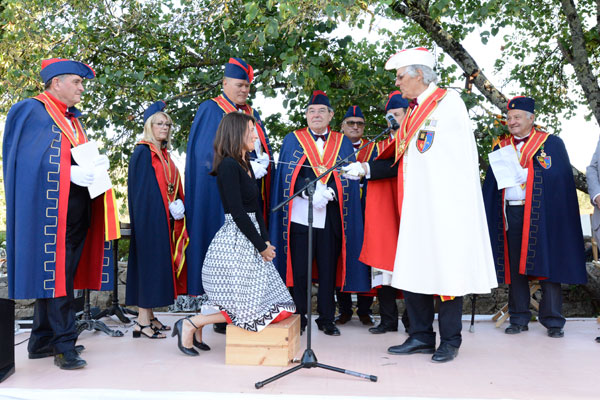
Intronisation d’une impétrante par le Grand Maître
Françoise Rigord, La Dame de Peyrassol
Formerly owned by the Order of Templars, the Commanderie de Peyrassol, thanks to its strategic position, constituted a place of welcome and stage for the pilgrims. At the dissolution of the order by King Philip the Fair, the estate of Peyrassol – like all those of the Templars – was attributed by Pope Clement V to the Hospitallers of Saint John of Jerusalem who, in 1530, became the Knights of the Order of Malta.
At the French Revolution in 1789, the Commandery was sold as a national asset to the Rigord Family, which passed it on from generation to generation.
In the 1980s, Françoise Rigord-Cornu contributed to the growth and the influence of the vineyard by marketing bottled wines, thus pioneering the way of the great wines of Côtes de Provence.
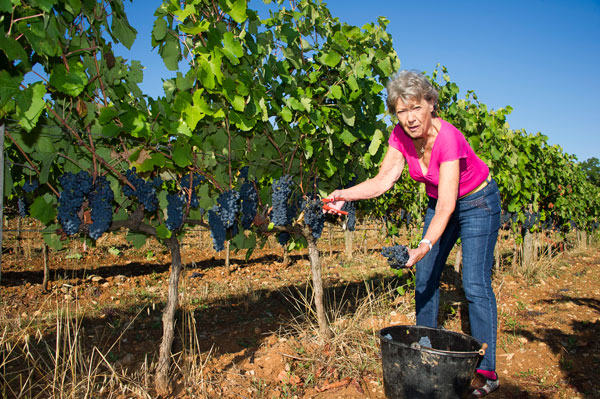
Françoise Rigord à la Commanderie de Peyrassol
Wine tourism
Françoise Rigord presided over the Independent Winegrowers of the Var and will lead for many years the Association des Dames de Vins at the national level.
In 2001, the Commandery of Peyrassol was acquired by Philippe Austruy, a man passionate about wines, seduced by the potential of the Commanderie.
His nephew, Alban Cacaret, raised on July 1st to the rank of Officer of the Illustrious Order of the Knights of Medusa, manages the domain, one of the four owned by the Austruy Family.
Since then, the Commanderie has been modernized with a new wine cellar, an increase area of vines cultivation, and the enhancement of the estate by wine tourism with the organization of cellar visits, tasting and on-site sale, and the arrival on the vineyard of superb works of contemporary art.
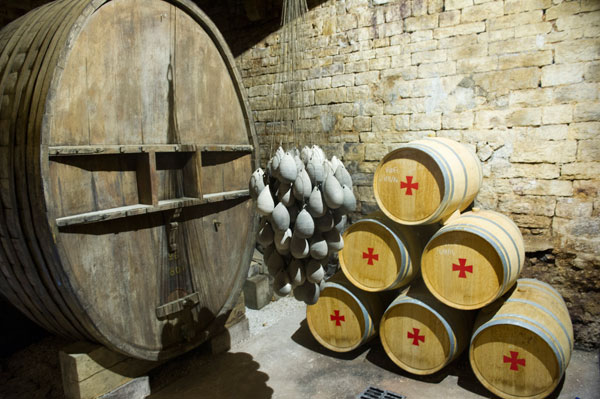
Foudre et tonneaux
Before tasting the dinner of the agapes, prepared by the caterer Yves Scorsonelli, the grand master wished to the assembly: “”Gentes dames, douces demoiselles et beaux sires, bonne chère, bel esprit et de très belle Lampées de nos Huiles provençales!”
Commanderie de Peyrassol
RN7 – 83340 Flassans-sur-Issole
Tél +33 (04 94 69 71 02)
The Illustrious Order of Knights of Medusa at Commanderie de Peyrassol in images
Click on pictures to enlarge – ©YesICannes.com – All rights reserved

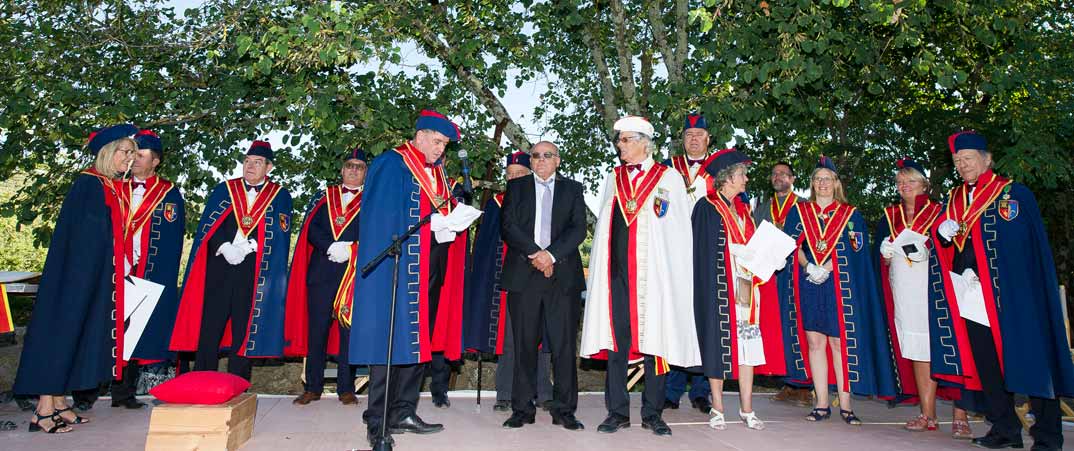
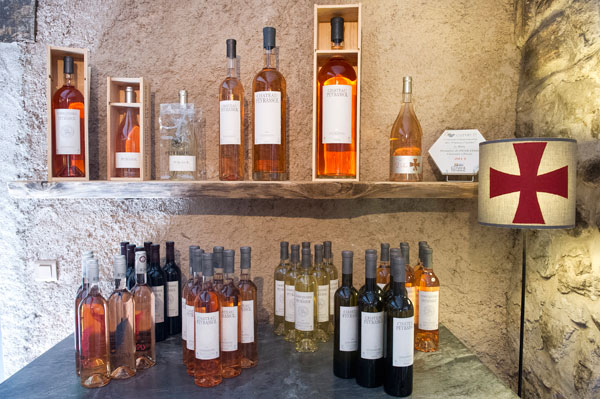
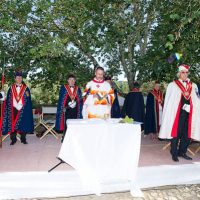
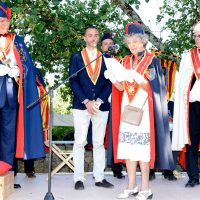


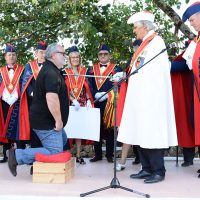


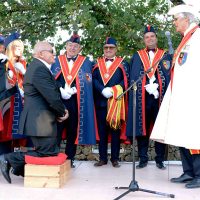
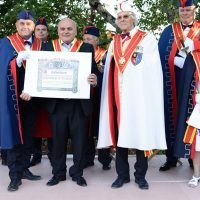
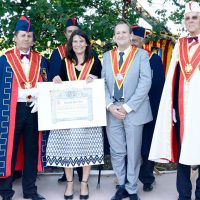
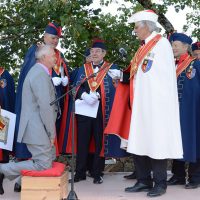

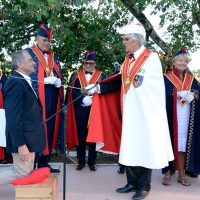

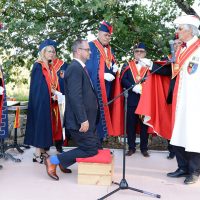
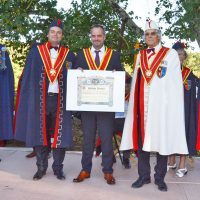
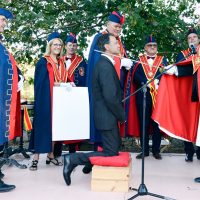
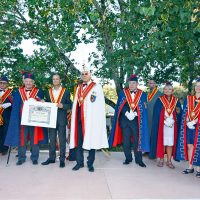
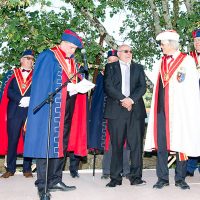
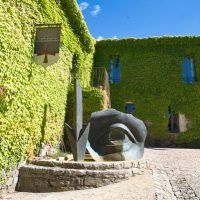
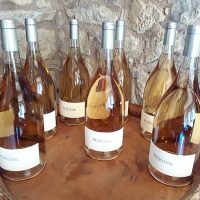
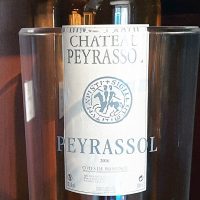
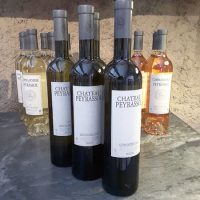
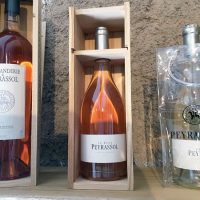


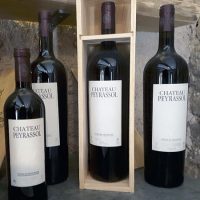

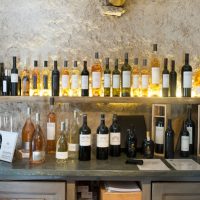
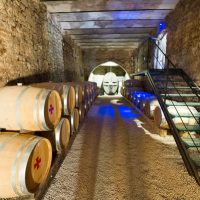



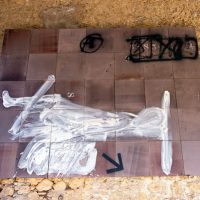

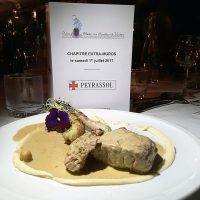


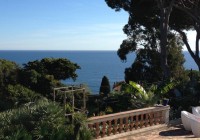
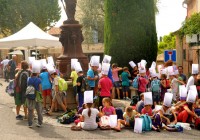









Recent Comments